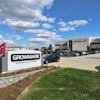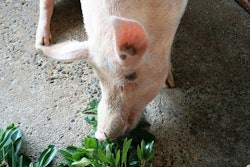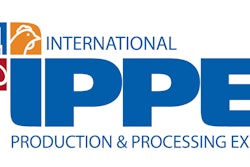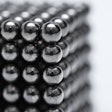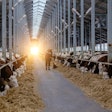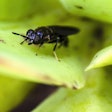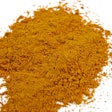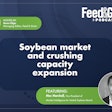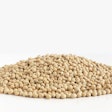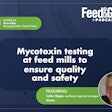
From mycotoxins to hypothermia, swine producers face a number of environmental challenges that threaten their pigs’ health — and their bottom lines.
At the 2020 Iowa Pork Congress and Exposition, Phibro Animal Health Corporation introduced two new products: one to help swine producers reduce the moisture in swine feed and the other to help piglets stay dry and start strong.
Reduced Mold, Increased Bottom Line
Mycotoxins threaten swine producers’ profits through decreased production and productive performance, often going undetected until pigs exhibit clinical signs of mycotoxin contamination — and by then, it’s often too late. Until now. By controlling moisture in swine feed,Quantic™ Pulse, a nutritional specialty product from Phibro Animal Health Corporation, has been designed to help swine producers reduce the likelihood of mycotoxin challenges. Reducing moisture helps limit mold growth and limiting molds, such as those that produce two of the costliest mycotoxins – Deoxynivalenol (DON) and zearalenone (ZEN), can help improve body weight, average daily gain and average daily feed intake.
“Left untreated, these molds, and the subsequent mycotoxins that they can produce, are extremely detrimental to productivity,” says Paulo Rezende Napier, Marketing Director, Phibro Animal Health Corporation. “By feeding Quantic Pulse daily at the recommended rate, producers can help protect their herds and optimize performance.”
124年合同研究2019年的一项研究,巴罗斯gilts were fed three treatment diets, including a negative control (feed with no mycotoxins), a positive mycotoxin control (feed containing 4 ppm DON and 0.5 ppm ZEN from a naturally contaminated corn source) and the same positive mycotoxin control diet containing Quantic Pulse at an inclusion rate of 0.50% (10 lb per U.S. ton). Based on body weight and average daily gain results, Quantic Pulse successfully mitigated the 4 ppm DON and 0.5 ppm ZEN.
Dryd™ Drying Agent for Piglets
Hypothermia, a major contributing factor in the mortality rate of neonatal piglets, poses another challenge to swine producers. At birth, piglets lose heat rapidly — especially when wet. Now, swine producers have Dryd, a new drying agent from Phibro Animal Health Corporation, that can absorb up to three times its own weight in moisture.
“Dryd helps producers offset cool, wet conditions at birth by absorbing excess moisture,” explains Mark Rooney, Director of Phibro’s U.S. Swine Business Unit. “By keeping newborn piglets dry, they get off to a strong start, which can lead to improved survivability.”
In addition to hypothermia, crushing deaths have been shown to decrease when piglets are dry and warm. In a farrowing study by Andersen et al. in 2009, drying piglets in addition to employing heat lamps significantly decreased (P < 0.05) the number of litters in which at least one pig was crushed.
Dryd features a blend of GRAS/AAFCO-listed, all-natural ingredients that give it a significantly higher moisture capacity than comparable products. Dryd can also be used as a litter desiccant for ruminants and poultry. It is available in 30-lb bags for ease of handling.
Both Quantic Pulse and Dryd are now available by contacting their Phibro representative or visitingpahc.com.




